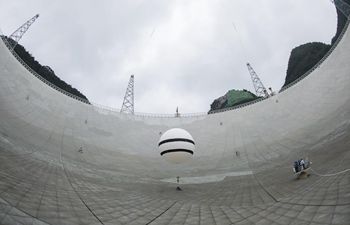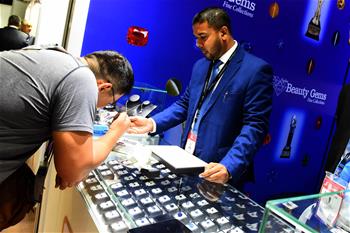NANCHANG, Aug. 31 (Xinhua) -- Chinese researchers have examined an artifact unearthed from a Western Han Dynasty (206 B.C.-A.D. 25) tomb and confirmed it as a traditional Chinese herbal medicine.
The artifact was excavated from the tomb of the Marquis of Haihun in east China's Jiangxi Province in 2015. It has recently been confirmed as a processed rehmannia root, a common herb in traditional Chinese medicine, according to Huang Luqi, president of the China Academy of Chinese Medical Sciences, who led the research.
It is believed to be the earliest sample of processed herbal medicine ever found in China, Huang said.
Huang added that his team used a number of technologies including microscopy, mass spectrometry and three-dimensional reconstruction to analyze the sample and found that it is a rehmannia root coated with sucrose and starch.
The sucrose and starch are believed to have been applied to ease the herb's bitter taste and unpleasant smell, according to Peng Huasheng, a member of the research team.
The sample is of great significance for the study of the processing techniques of traditional Chinese medicine, Huang said.
The tomb of the Marquis of Haihun is part of China's most complete Western Han Dynasty cemetery. The excavation of the tomb began in 2011, with more than 10,000 heritage pieces unearthed so far.

















